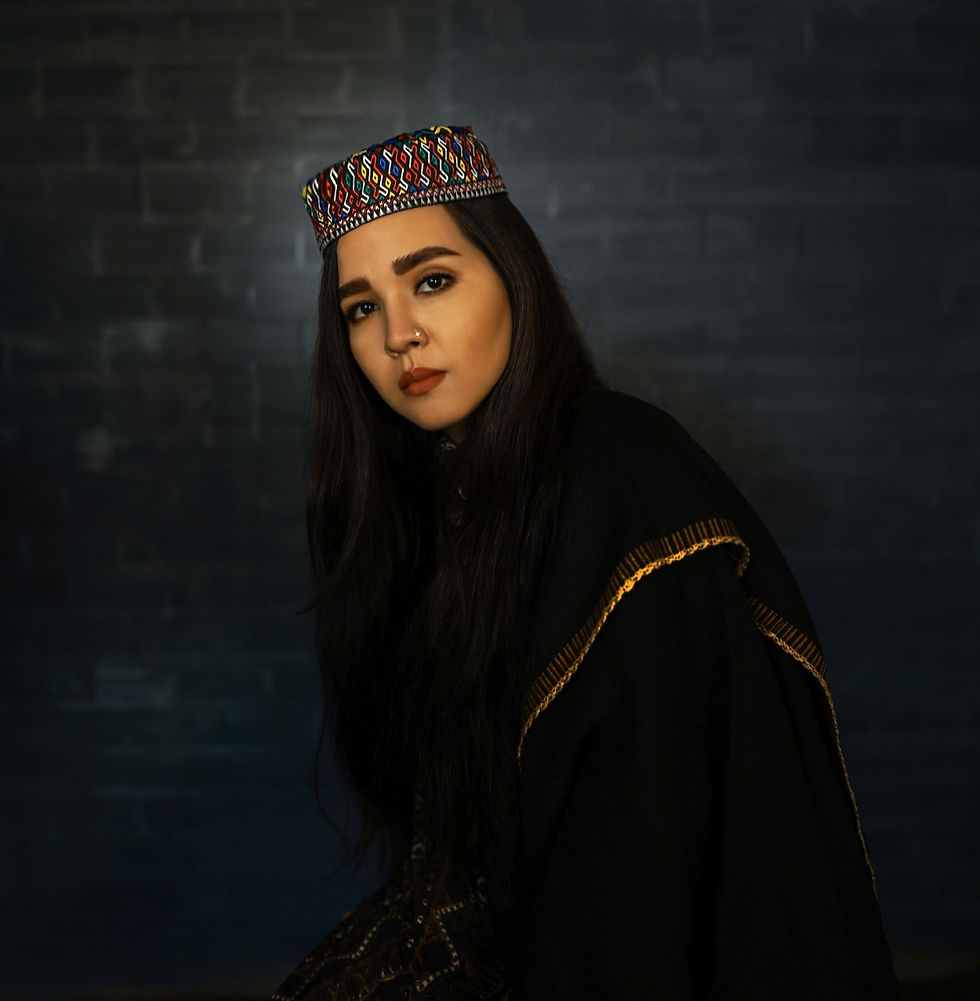A Colourful View of Afghanistan
- C-print

- Jun 8, 2020
- 3 min read
Updated: Oct 28, 2020
Fatimah Hossaini wants to show another, brighter side of Afghanistan. She chooses to do so in colorful photographs with clear, often female, subjects. In an interview with Henrik Schedin, she talks about her artistry and the opportunities and limitations of the art scene in Afghanistan.

Fatimah Hossaini, from 'Pearl in Oyster'
The compositions are created by staged environments that Fatimah photographs inside a studio or in open air environments. The results are expressive still lifes which depict a side of Afghanistan that is not captured by the lens of Western war correspondents. The latest collection is photographed along Chicken Street, a street that is a common part of Kabul’s everyday life, in which Fatimah wants to capture its beauty. Fatimah often returns to the topic of showing an alternative image of Afghanistan. An image beyond war, terrorism and the oppression of the Taliban. Afghanistan has a rich culture and history and she wants to highlight the beautiful environments, the multiculturalism and the joy. At the same time, she wants to create something more imaginative than documentary photo, which is why she started with staged photography.
Several galleries around the world have exhibited Fatimah's photographs, including Lars Bohman Gallery (now cloesed) in Stockholm. She talks of a gallerist in Austria who asked her to send more of her work, but only wanted photos of women in burka. That experience made her want to capture the opposite. "We, the younger generation, must work to change the image of Afghanistan," she says. “We have to display the beauty.” People often respond to her images with surprise and question whether it is possible to move in public without a burka, and if it is even possible to move freely in the streets. "There are even women in Kabul without hijab," Fatimah says.

Fatimah Hossaini, from 'Pearl in Oyster'
She was born in Iran's capital Tehran, where her parents had migrated from Western Afghanistan. She never visited her parents' home country during her childhood, but it was always present through the language and her parents' stories. According to Iranian authorities, she was considered a refugee and Afghan, and therefore had to return to Kabul in 2013 to apply for studies at the University of Tehran.
She lyrically describes the first homecoming; it was nostalgic and emotional. That was when the desire to return and work in Afghanistan emerged. After her studies, she traveled to Kabul to photograph and eventually moved there permanently and now teaches photography at Kabul University. Together with Sharif Safi, she has also started the organization Mastooraat. The organization supports female artists in the country, through scholarships and workshops. Art is often the last thing people think of in a country where many struggle to survive, but Mastooraat wants to support those who try to create art among the violence and poverty.

Fatimah Hossaini
Although Fatimah wants to change the world view of the war-torn country, she is also transparent with the fact that it is difficult to work as an artist in Afghanistan. "Of course, people are affected by the war, and it affects the soul of the people. People are worried and have so much else to think about than creativity", she says. Conservative ideals are still strong in the country, and her art is being questioned. “Religious people question why my models don't use hijab. Others question why I don't use pashto girls when using hazaras.”, she continues.
Fatimah says there is an active cultural life despite the violence in post-Taliban Afghanistan. There are several active artists, both in the diaspora and within the country. Many of them explore migration, identities, social taboos and family relationships. She mentions, among others, the graffiti artist Shamsi Hassani and the visual artist Moshtari Hilal. She also talks of Mohsin Taasha, a visual artist who was represented at dOCUMENTA13 in Kabul.

Fatimah Hossaini, from 'Pearl in Oyster'
However, there is no gallery for visual arts in the country yet. The organization Mastooraat wants to conduct such operations, but at present it is not possible; “An attack on an opening would be too painful.” Instead Fatimah's exhibitions are touring the world and she is soon releasing her first book with a collection of her photo series. With these she decidedly wants the world to understand that there is beauty and a cultural life beyond merely burkas, oppression and violence.
Henrik Schedin is an editor of Sydasien - kulturell och politisk tidskrift.
Text originally published at www.sydasien.se
www.henrikschedin.com


